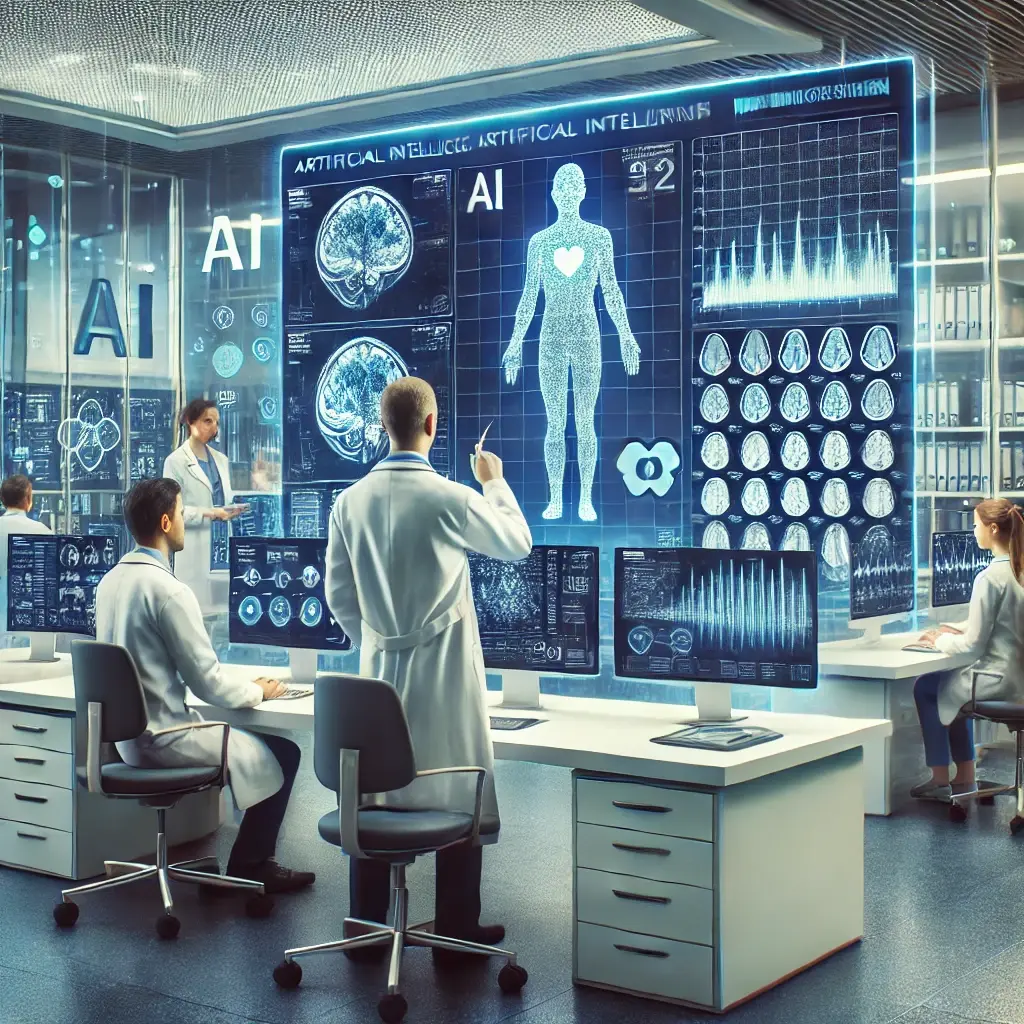I've noticed something interesting lately: whenever AI comes up in conversation, people immediately jump to worst-case scenarios. While healthy skepticism is valuable, I think we're missing something crucial by focusing solely on potential downsides. Let me share why I'm genuinely excited about AI's future.

Moving Past AI Anxiety
Look, I get it. The pace of AI development can feel overwhelming. But in my experience working with this technology, I've seen firsthand how it's already making life better in ways many people don't realize. Instead of letting anxiety about AI paralyze us, let's explore what's actually working.

Healthcare: Where AI Is Already Saving Lives
I'm particularly excited about AI's impact in healthcare. Take Paige AI, for example. Their AI systems are helping pathologists detect and diagnose cancer more accurately through digital pathology. This isn't sci-fi – it's happening right now. Their AI tool for prostate cancer detection was the first to receive FDA breakthrough designation in pathology. Doctors I've spoken with tell me these tools help them make better decisions faster, not replace their judgment, but rather augment their expertise with additional insights.
What really blows my mind is the efficiency gain. According to Accenture research, AI could save healthcare $150 billion annually by 2026. That's not just numbers – it means more affordable and accessible healthcare for everyone.
Green Tech: AI as an Environmental Ally
Here's something cool: Google's DeepMind cut their data center energy use by 40% using AI. When I first read that stat, it clicked for me – AI isn't just about chatbots and automation. It's helping us tackle climate change in ways we couldn't before.
A PwC report suggests AI could slash global greenhouse gas emissions by 4% by 2030. That's like taking millions of cars off the road. And the best part? It's boosting the economy while doing it.
Education: Making Learning Work for Everyone
I'm particularly passionate about how AI is transforming education. Platforms like DreamBox Learning are doing something I wish existed when I was in school – creating truly personalized learning experiences. Every student learns differently, and now we have tools that adapt to those differences.
What really gets me excited is how AI is helping students with disabilities. I've seen how AI-powered assistive technologies are opening up new possibilities for students who previously struggled with traditional learning methods.
Empowering Workflows with liblab
As AI transforms industries, platforms like liblab enable organizations to harness the power of AI agents for daily operations. liblab simplifies the creation of AI-driven workflows, automating tasks and enhancing team efficiency.
With liblab, users can connect agents to a wide range of services and tools securely, automating workflows tailored to their needs. Schedules and triggers can be defined to ensure that workflows run on demand or at specific intervals, making AI agents a vital asset in enhancing operational efficiency.
liblab’s AI agents seamlessly integrate services like Jira, GitHub, and Slack. For example, an agent can connect Jira tickets with GitHub issues, automatically updating user’s on Slack to ensure team alignment and effective communication.
By leveraging liblab, businesses can unlock the full potential of AI, empowering teams to focus on innovation and drive sustainable growth in an increasingly automated world.
The Economic Upside
The numbers around AI job growth are incredibly encouraging. According to CompTIA's latest report, there were over 14,000 AI-related job openings in the U.S. alone – that's a 32% jump from last year. The median salary? $160,056. This isn't just job replacement; it's job transformation.
What's even more encouraging is how companies are adapting. Amazon's "AI Ready" program aims to train 2 million people in AI skills by 2025, completely free. That's the kind of forward-thinking approach we need.
The global AI market has grown to $279 billion, up about $80 billion since 2023. These aren't just numbers – they represent real opportunities for innovation and growth.
Looking Forward
Here's what I believe: AI's future isn't something that happens to us – it's something we shape together. Yes, there are challenges to navigate, but the potential benefits are too significant to ignore. From saving lives in hospitals to fighting climate change and creating new job opportunities, AI is already making a positive impact.
What excites me most isn't just the technology itself, but how it's enabling us to solve problems we once thought impossible. As someone working in this field, I'm optimistic about where we're headed. The key is to stay engaged, keep asking questions, and ensure we're steering this technology toward outcomes that benefit everyone.
What potential AI applications get you excited about the future? I'd love to hear your thoughts.
Before you go, are you ready to transform your API strategy with automated SDK generation? Explore how liblab can help you generate consistent, high-quality SDKs across 6 programming languages from your OpenAPI specification. Your developers—and your budget—will thank you.Build an SDK For Any API
